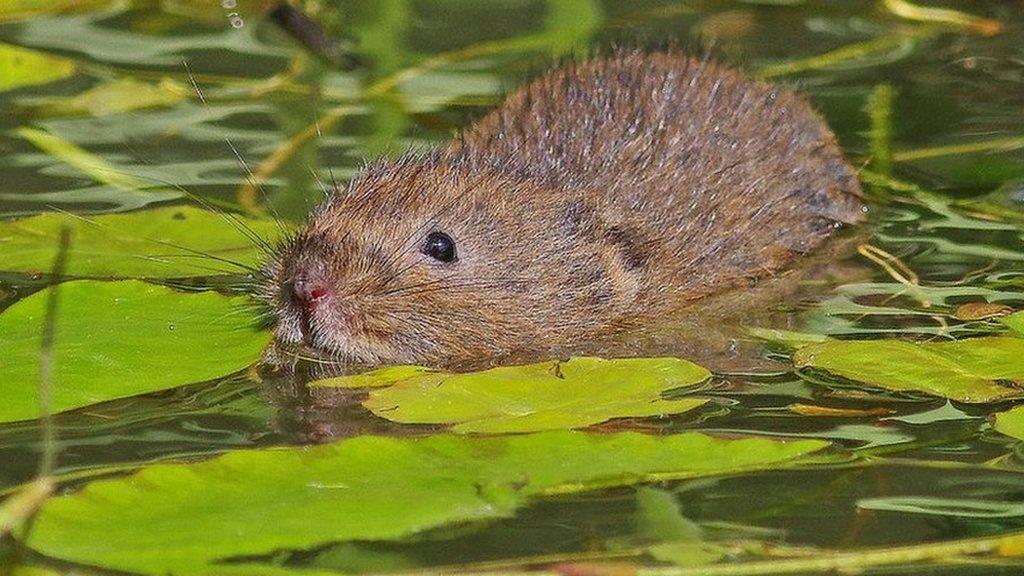Work to help chalk streams cope with hotter weather
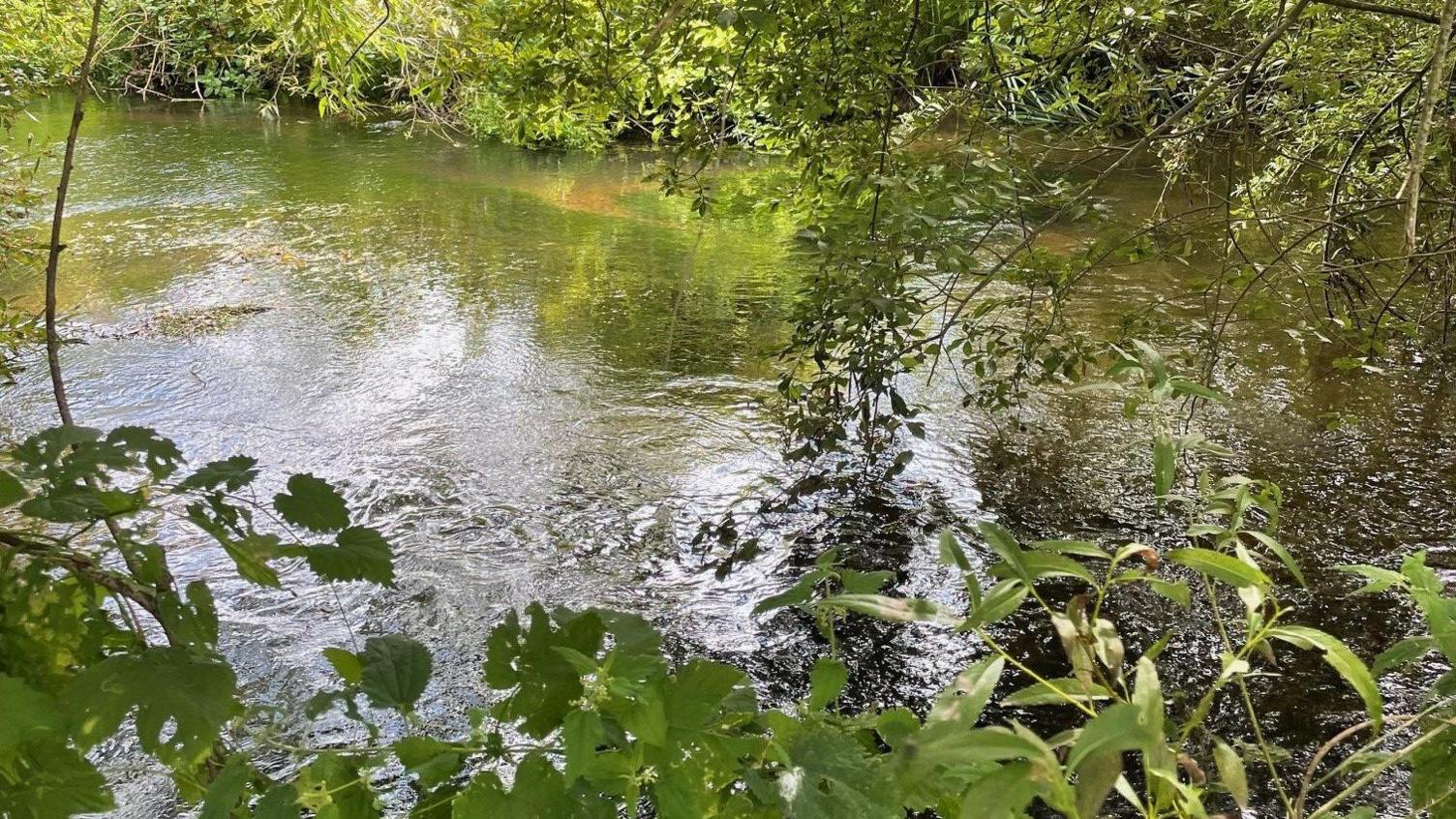
The River Lea runs through Lemsford Spings Nature Reserve
- Published
A new two-year project to restore 11 kilometres (6.8 miles) of chalk stream habitat aims to "increase its resilience to climate change impacts".
Herts and Middlesex Wildlife Trust said the works at Lemsford Springs, which is close to Welwyn Garden City, Hertfordshire, will help the chalk stream to cope with hotter summers, wetter winters and spates of heavy rainfall.
Conservationists plan to re-dig old channels along the River Lea, and restore meanders and gravel beds.
Sarah Perry, a river catchment coordinator at the trust, said: "For a chalk river to be in good health they need to have clean stable water with good flow all year round, running through habitat that's in good natural condition."
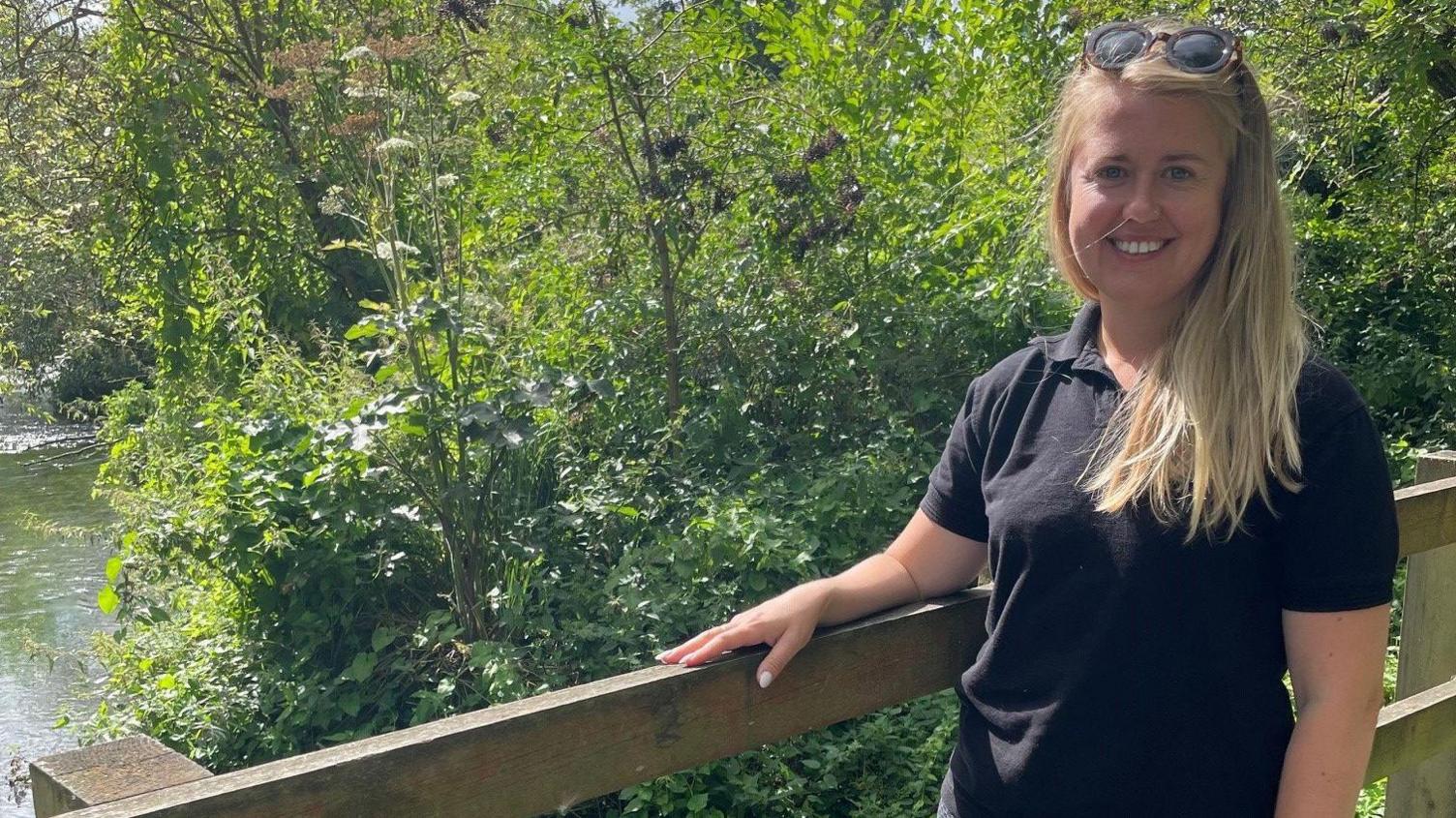
Sarah Perry said that chalk streams were a "rare" type of river
The project, which has been funded by the government's Species Survival Fund, will reconnect 46 hectares (114 acres) of floodplain and create four hectares (10 acres) of habitat including ponds and a reed bed.
The trust said new ponds will be dug out in silted-up areas to recreate lost habitat for wildlife. Works would also include opening the canopy in some areas to balance light and shade, as well as building up brushy banks which have been eroding due to flooding between the River Lea and the pristine lagoons.
Large, woody material will be put into the river to recreate natural processes and fast and slow flowing areas, which will generate habitats for fish and "squeeze" the river in the summer months when flows are low.
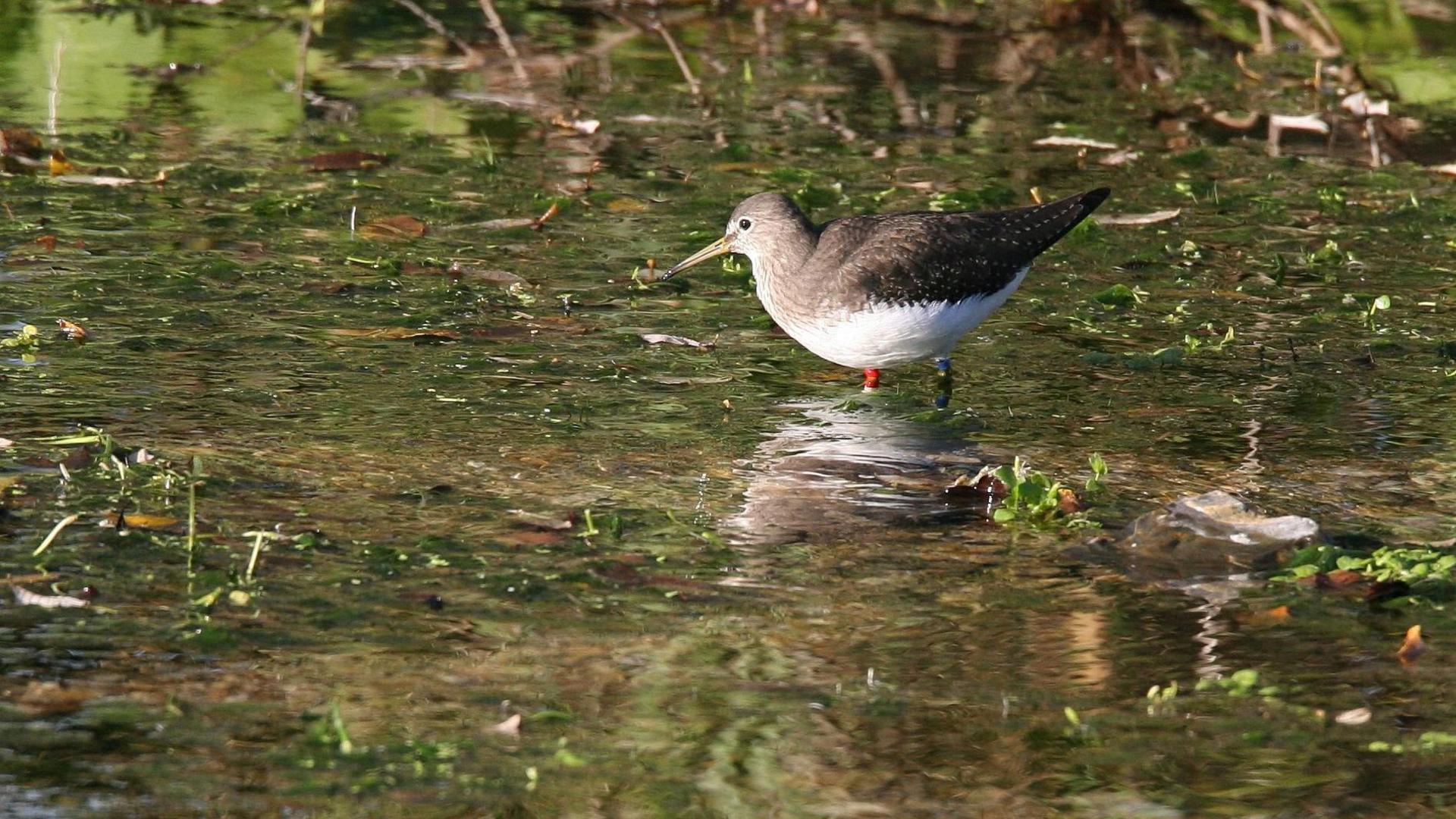
The site has the largest concentration of Green Sandpipers in the UK, the wildlife trust said
Ms Perry said: "Natural features that have been lost from the river, when put back, will increase its resilience to climate change impacts.
"They won't solve the fact that there'll be low flows, but they will help mitigate those by speeding up flows, creating deeper areas, maintaining a channel with a smaller volume of water flowing through it in better condition for that dry period," she added.
Get in touch
Do you have a story suggestion for Beds, Herts & Bucks?
Follow Beds, Herts and Bucks news on BBC Sounds, Facebook, external, Instagram, external and X, external.
Related topics
- Published2 May 2024
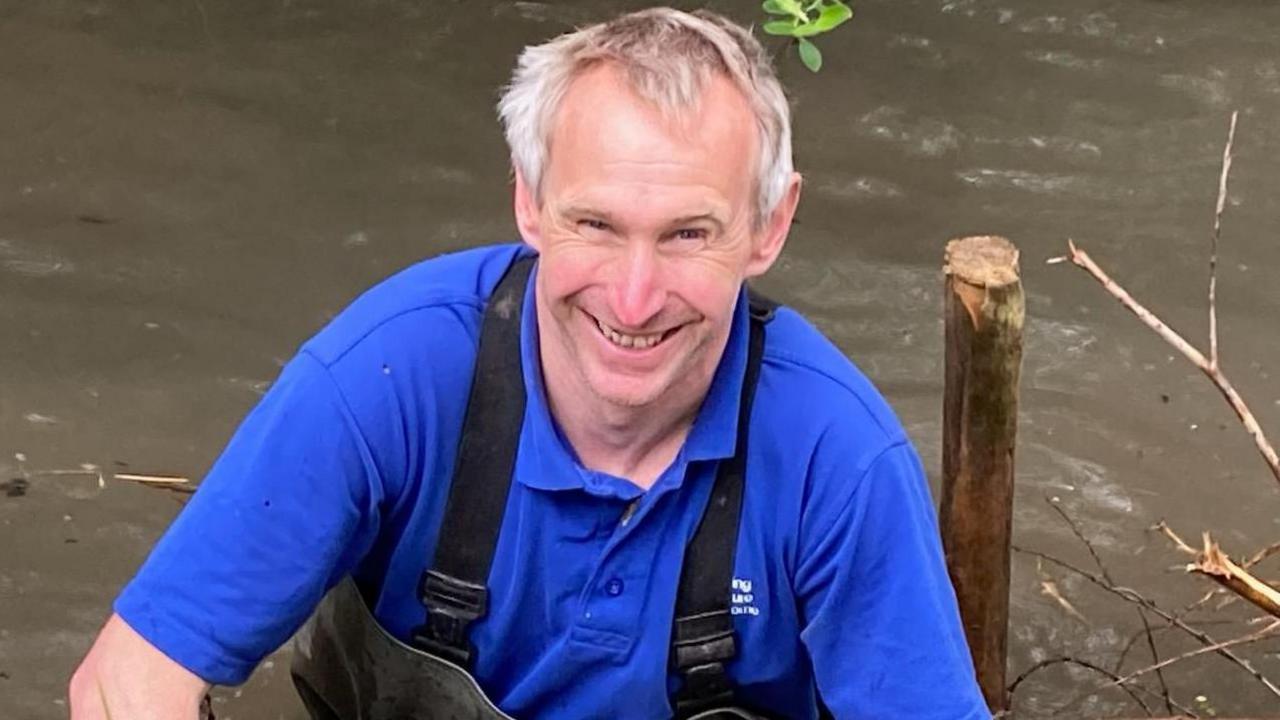
- Published10 August 2022
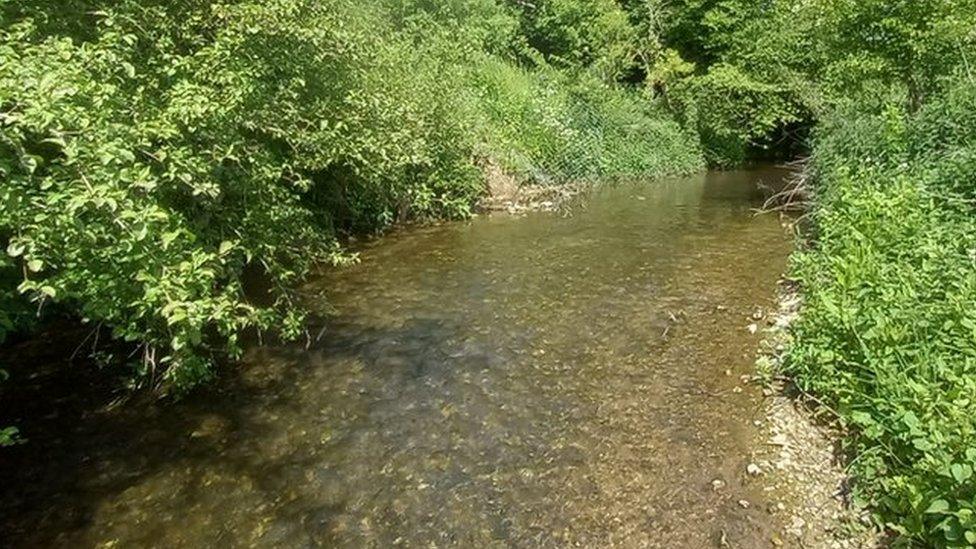
- Published31 January 2023
